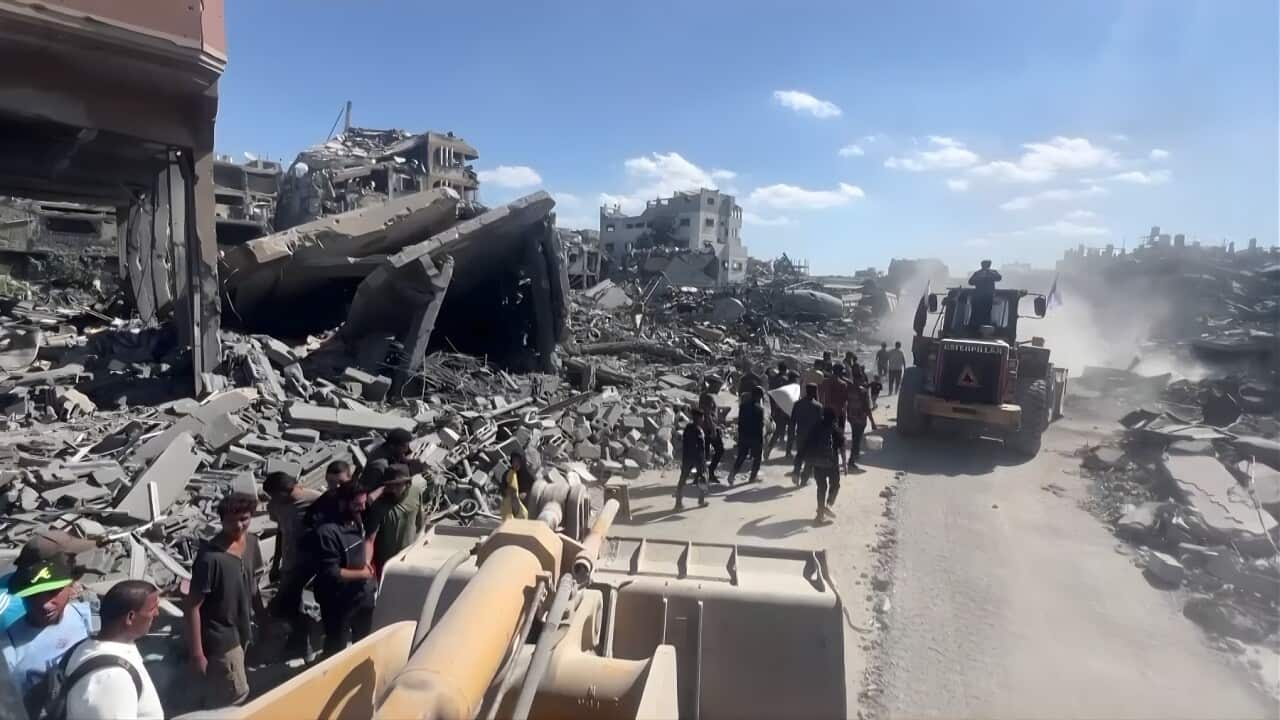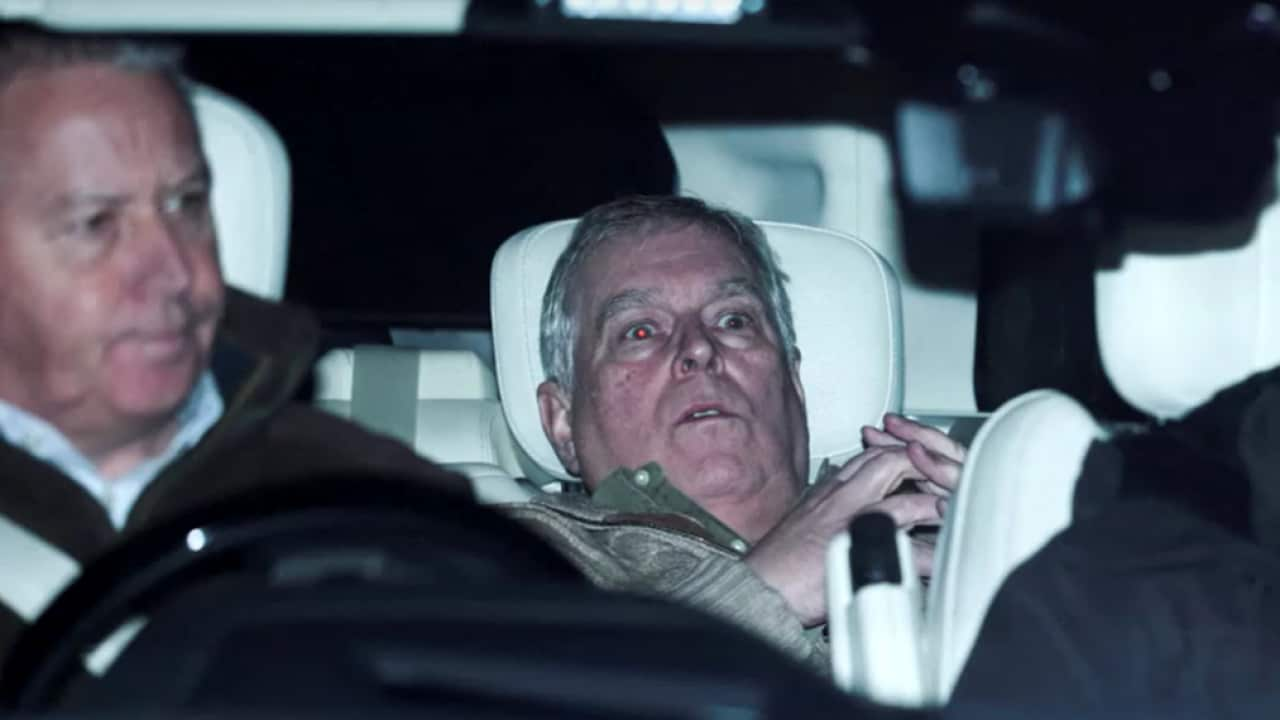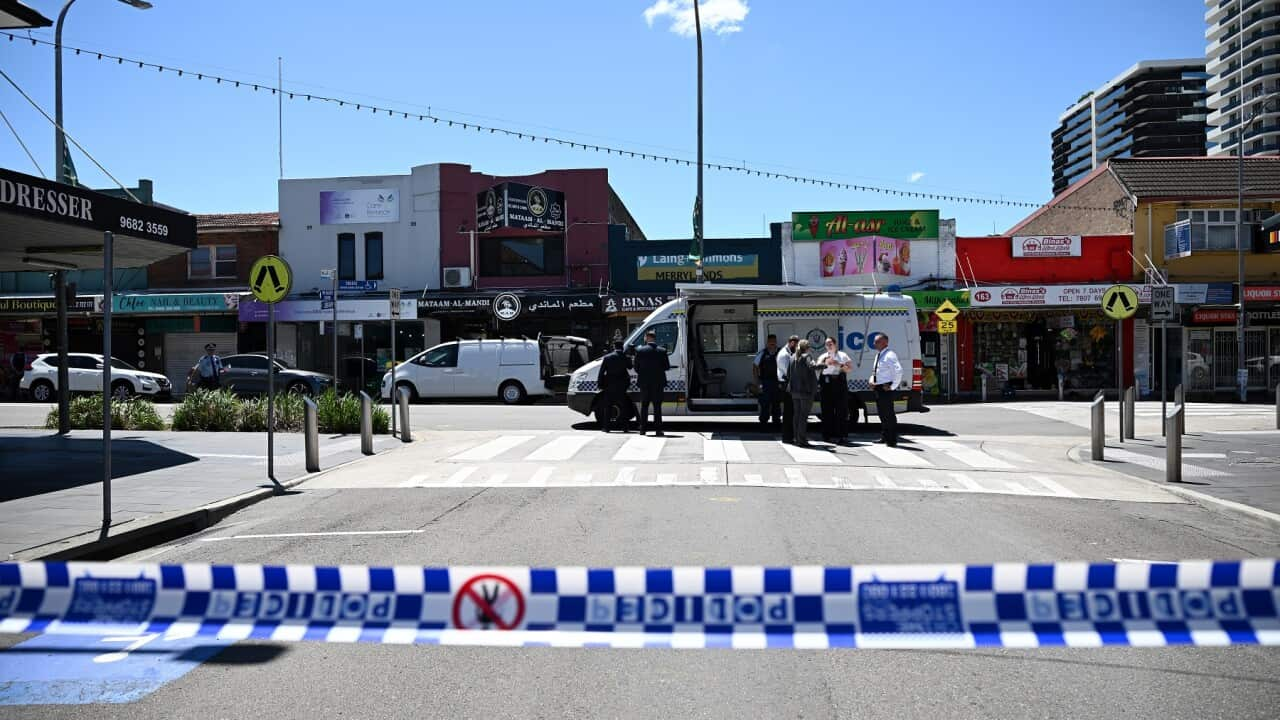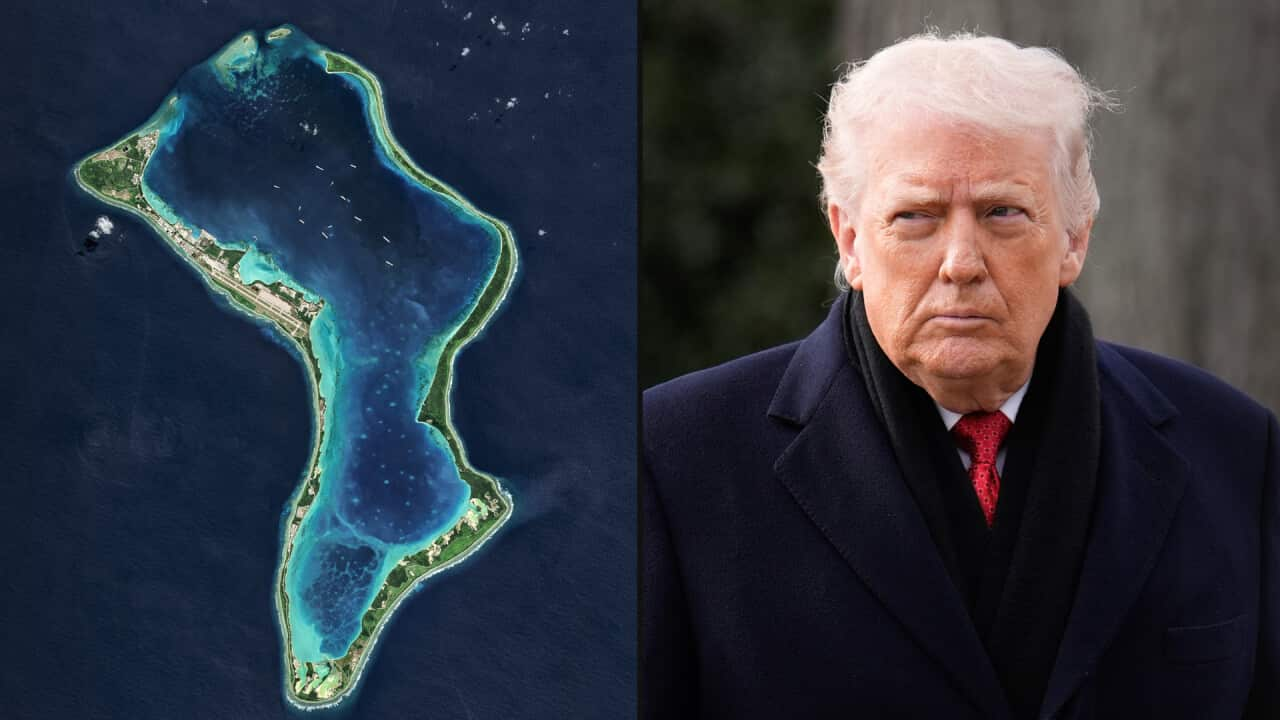Listen to Australian and world news and follow trending topics with SBS News Podcasts.
TRANSCRIPT:
Hamas has returned more bodies of Israeli hostages to the International Committee of the Red Cross in Gaza.
Questions remain over sustainable peace in the Middle East, with uncertainty about how to resolve sticking points in Donald Trump's 20-point plan.
"And it will happen quickly and perhaps violently."
That's US President Donald Trump's warning to Hamas.
It comes as Hamas and the U-S President are unable to agree over disarmament.
REPORTER: "How long will it take Hamas to disarm and can you guarantee that it's going to happen?"
DONALD TRUMP: "Well, they're going to disarm, and because they said they were going to disarm, and if they don't disarm, we will disarm them."
REPORTER: "How will you do that?"
DONALD TRUMP: "I don't have to explain that to you. But if they don't disarm, we will disarm them. They know I'm not playing games, okay? Now, we did something monumental. We got the hostages back. That was the first thing we had to do."
While Hamas has said in the past that it would agree to step back from governing Gaza, the militant group has not said it would disarm.
This is a condition that Israel's Prime Minister Benjamin Netanyahu has demanded for a long-term truce to end the war.
According to Israel officials, Israel decided to restrict aid into the enclave and delay plans to open the border crossing to Egypt.
Their reason is that Hamas had been too slow to turn over bodies of hostages who died in captivity, which was one of the key points of the peace agreement.
"Above all else, get the hostages back. Now, they misrepresented because we were told they had 26, 24 of dead hostages, if we can use those terms. And it seems as though they don't have that."
Despite the ceasefire agreement that was signed this week, the long-term peace plan for Gaza remains unclear.
The bodies of four Israeli hostages have been returned to the International Committee of the Red Cross in Gaza, and the surviving 20 Israeli hostages have also been released.
Israel has released nearly 2000 Palestinians from Israeli prisons.
The exchange is part of the first phase of the proposed peace plan.
The chief spokesman for the International Committee of the Red Cross Christian Cardon says the organisation has reopened its presence in Gaza City.
He says there remains a lot of work to do over coming weeks.
"The dignity of the human remains can be respected. And also the identification of the people to make sure as soon as possible. And what we also see as top priority at the moment it is about aid coming to the people. It is very important that in addition to the emergency aid that will be in the trucks, there is also materials to allow the key actors to rebuild these infrastructures."
Hamas has accused Israel of violating the ceasefire, after the recent deaths in Gaza.
According to Gaza's health authorities, five were shot dead by Israeli troops as they went to check on houses in a suburb east of Gaza City, while an air strike killed one person and injured another near Khan Younis.
In a social media post on X, the Israel's Defence Force said a group were spotted crossing the so-called yellow line in northern Gaza to which troops agreed to withdraw.
The military group claims that approaching IDF troops was a clear violation of the peace agreement.
They admitted firing on the individuals but have denied breaching the ceasefire deal.
Under the first phase of the ceasefire deal it was agreed 600 trucks were to enter Gaza each day.
A spokesperson for the Office for the Coordination of Humanitarian Affairs, Olga Cherevko, says they have put a plan into action.
"Our scale-up plan for the first 60 days, tested and proven to work, is in full motion. In the past three days, thousands of tons of humanitarian aid and other supplies have entered Gaza, including cooking gas, which entered on Sunday for the first time in over seven months. We're offloading and collecting critical supplies and accessing areas, which we weren't able to reach for months."
But in a setback to the aid delivery, the United Nations now confirms Israel will only allow half of the agreed number of aid trucks into Gaza.
"We have received this communication from the Israeli authorities. And of course, we continue to encourage the parties to adhere to the agreements that have been set out in the ceasefire parameters. And we certainly very much hope that the bodies of the hostages are handed over and that the ceasefire continues to be implemented."
According to Gaza's health officials, more than 67,000 have been killed in the enclave since the October 7 attack in 2023 that resulted in about 1200 deaths in southern Israel.
Thousands more are feared dead under the rubble in Gaza.













